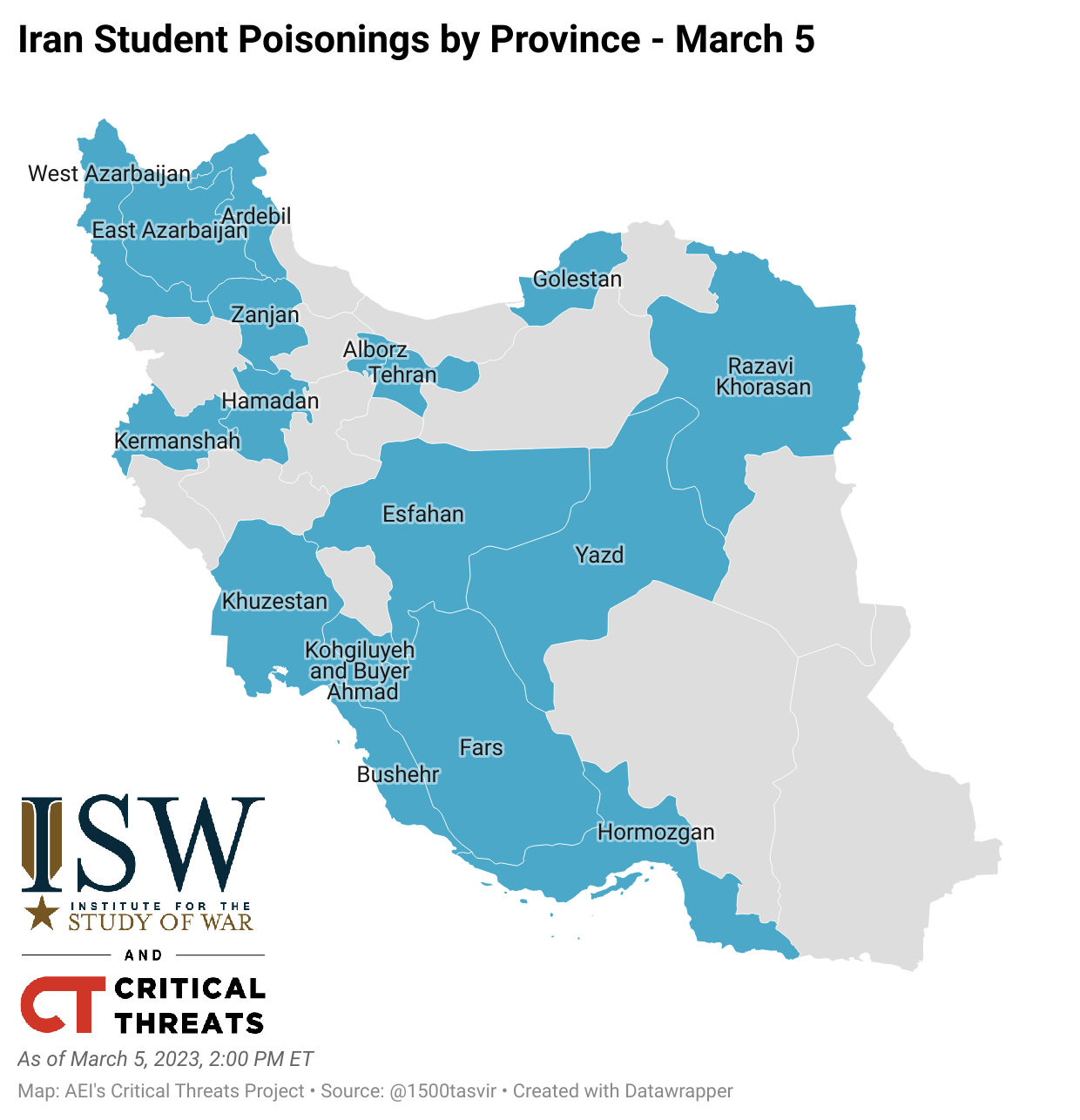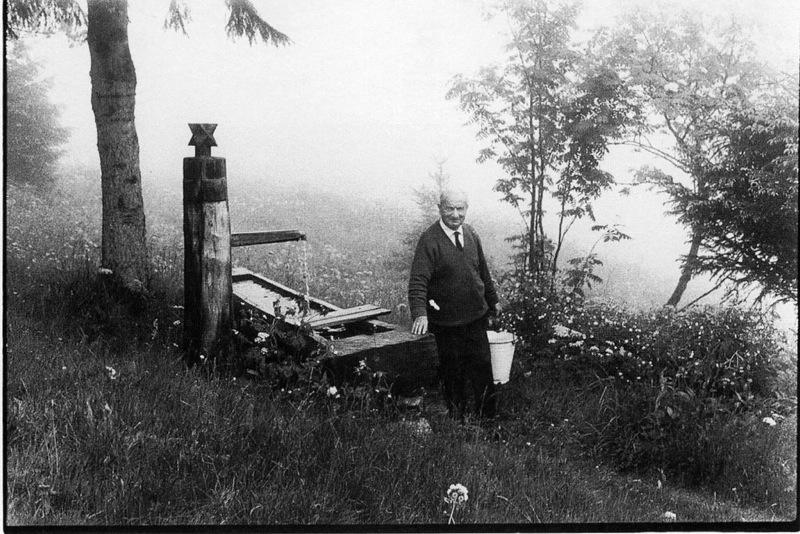The Iranian regime has permitted the country-wide, coordinated attacks on Iranian schoolgirls to escalate. Between March 4 and March 5 alone, there were at least 300 attacks across 16 provinces, a significant increase from the 46 reported poisoning attacks on March 2 and the other sporadic attacks from November 30, 2022, onward. The nature of these attacks, targeting primarily schoolgirls in urban areas who report similar symptoms, escalating over a period of four months, indicates that this is an organized and deliberate campaign, as CTP has previously assessed.
An organization able to conduct sustained attacks such as these likely has a number of distinctive characteristics. First, it has members who are either widely dispersed throughout Iran or else able to move rapidly across the country. These capabilities are essential for a group conducting attacks on dozens of locations in more than half of Iran’s provinces each day for two consecutive days. Second, it must have a stock of whatever chemical agent it is using sufficient to conduct all these attacks. Third, it must be able to distribute that stock to the target locations. Fourth, its agents must be able to approach their targets undetected, deliver the agent by some means, and depart without being intercepted before, during, or after the attack. Fifth, its agents must either be unidentifiable, including by facial recognition, or protected in some way. Sixth, it must either be willing to risk having its agents identified, arrested, and unmasked (with the additional risk that the organization’s identity will be revealed) or else it must be confident that they will not be for some reason. Seventh, it must regard the advantage gained by poisoning schoolgirls without killing them to be sufficient compensation for the risks involved in the undertaking.
[...]
The Iranian regime’s response to these attacks is anomalous and difficult to explain unless regime officials are complicit in at least allowing the attacks to continue. The most straightforward explanations require that at least some senior regime officials are knowingly allowing these attacks to occur for some reason, but there is only circumstantial evidence to support them. Other explanations require more elaborate schemes attributing motivations and capabilities to anti-regime actors, whether foreign or domestic, that are even harder to substantiate. The available evidence does not support attributing these attacks to any particular group but does appear to show that the regime has been willing to allow them to continue.

